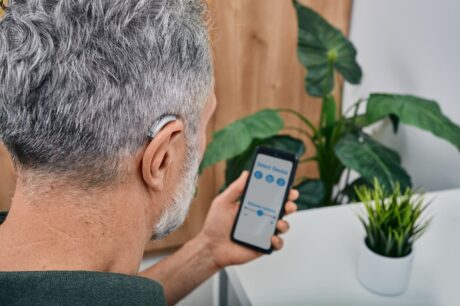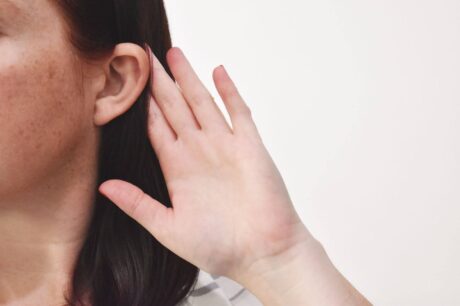An itchy ear canal is a common complaint, often disrupting sleep, concentration, and overall well-being. While occasional itchiness might be harmless, persistent or severe itching inside can indicate an underlying issue requiring attention. This guide will explore the prevalent causes behind an itchy ear canal, offer practical solutions for relief, and provide valuable advice for maintaining optimal ear canal hygiene.
Why Are My Ears So Itchy? Common Causes
The ear canal, as a sensitive part of our auditory system, is susceptible to a myriad of internal and external factors. These factors can trigger an itchy sensation within the ear canal, often leading to further complications if left unaddressed.
- Allergies: Airborne allergens, such as pollen, dust mites, and pet dander, can trigger allergic reactions within the ear canal, leading to inflammation and pruritus (itching). These reactions are often accompanied by other allergic symptoms like sneezing, watery eyes, and nasal congestion.
- Infections: The warm, moist environment of the ear canal creates an ideal breeding ground for bacteria and fungi. Infections like otitis externa (swimmer’s ear) can lead to inflammation, swelling, discharge, and significant itchiness.
- Earwax Buildup (Cerumen Impaction): Earwax plays a crucial role in protecting and lubricating the ear canal. However, excessive accumulation can obstruct the natural self-cleaning mechanism, trapping debris and creating an environment conducive to irritation and itching.
- Dry Skin: Similar to the skin on other parts of the body, the skin within the ear canal can become dry. Conditions like eczema or insufficient moisture can lead to dryness, characterised by flaking, cracking, and the accompanying itch.
- Environmental Irritants: Exposure to harsh soaps, shampoos, hair products, or even chlorinated water can irritate the delicate skin lining the ear canal. Additionally, airborne pollutants and extreme weather conditions can exacerbate dryness and sensitivity.
Identifying Symptoms and When to Seek Help
While an occasional itch inside the ear canal may not be cause for alarm, it’s essential to recognise when the itchiness becomes persistent or is accompanied by other symptoms. Early detection and intervention can prevent the condition from worsening and ensure prompt treatment.
The following symptoms may indicate a need for medical evaluation:
- Persistent Pruritus (Itching): Itchiness that does not resolve on its own or worsens over time should be evaluated by a hearing care provider.
- Otorrhea (Ear Discharge): Any discharge from the ear, whether clear, yellow, bloody, or purulent, should prompt a visit to a healthcare professional.
- Otalgia (Ear Pain): Pain within the ear canal, particularly when touched or manipulated, could signal an infection or other underlying condition.
- Edema (Swelling): Swelling in or around the ear canal, or ear boils, can be indicative of inflammation and requires medical assessment.
When Should I Seek Help For My Itchy Ear Canals?
If your itchy ear canal is accompanied by any of the aforementioned symptoms, or if it persists for more than a few days without improvement, it is essential to seek professional guidance. Early intervention can prevent complications, ensure accurate diagnosis, and facilitate appropriate treatment.
Effective Remedies for an Itchy Ear Canal
To address the underlying cause of your itchy ear canal, your hearing care provider may prescribe topical medications such as creams, ointments, or ear drops. These can effectively treat infections and inflammation. In cases of severe bacterial infections, oral antibiotics may be necessary. Alongside medical treatment, several home remedies can offer relief from itchy ears.
- Applying warm compresses to the outer ear can soothe discomfort and reduce inflammation.
- Keeping the ear canal moisturised with safe oils like olive oil or baby oil can prevent dryness and alleviate itching.
- If allergies are suspected, avoiding known allergens and irritants is crucial in managing symptoms.
How to Maintain Ear Canal Hygiene
Maintaining a clean ear canal is vital for preventing itchiness and infections. However, it’s crucial to clean your ears safely.
Avoid inserting objects like cotton swabs or bobby pins into the ear canal, as these can push earwax further in and potentially damage the eardrum. Instead, use over-the-counter earwax removal drops or seek professional cleaning from a hearing care provider if you suspect a buildup.
If you are prone to dry skin, keeping the ear canal moisturised can prevent itchiness. Applying a few drops of olive oil or over-the-counter ear drops can help maintain the skin’s natural moisture balance. This is particularly important in dry climates or long days in air-conditioned rooms.
- Manage allergies by using air purifiers, hypoallergenic bedding, and over-the-counter antihistamines when needed.
- Dry your ears thoroughly after swimming or showering to prevent moisture buildup, which can foster the growth of bacteria and fungi.
- Avoid excessive cleaning of the ear canal, as this can strip away the protective earwax and lead to dryness and irritation.
Proper Care for Your Ear Canals

Understanding the causes of itchy ear canals and implementing proper ear care practices can significantly improve your comfort and overall ear health. By seeking professional advice for persistent or severe symptoms and maintaining good ear hygiene, you can prevent complications and enjoy a better quality of life. Remember, a healthy ear canal is a happy ear canal.
If your itchy ear canal persists despite home remedies or is accompanied by other symptoms, don’t hesitate to schedule an ear check-up in Singapore with a hearing care provider. They can diagnose the underlying cause, recommend appropriate treatment, and guide you on maintaining optimal ear health.


















